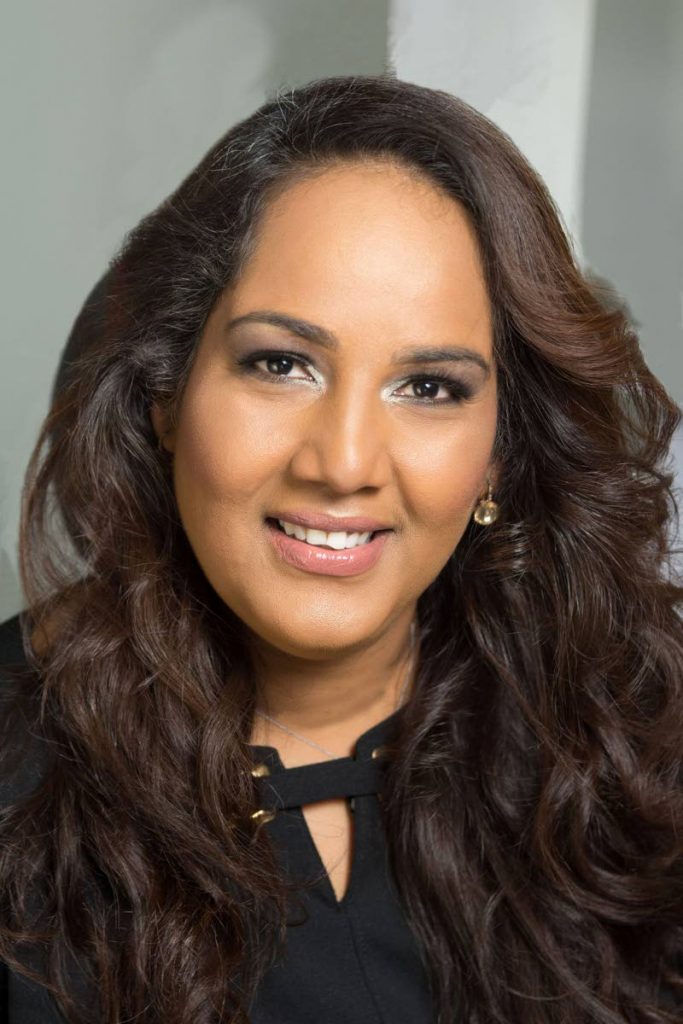Call for action on sexual assault and harassment

LAWS, policies and programmes of awareness should be used to combat a variety of types of sexual violence ranging from harassment to assault, urged panellists at a forum held virtually by entities of the University of the West Indies (UWI), St Augustine on Friday.
These bodies were the African Students Union (ASU), Institute of Gender and Development Studies (ISDS) and Standing Committee on Sexual and Reproductive Health and Rights including HIV and AIDS (SCORA.) Kelsie Joseph, co-founder of a lobby in the IGDS called CatCalls, lamented that on campus female students are subject to catcalls from auxiliary staff and that incidents of sexual violence have occurred at UWI’s Mount Hope campus. She wished to help students take legal action against sexual violence and to raise awareness of its negative impact on victims’ lives. Clinical psychologist Dr Katija Khan lamented that while 70 per cent of women have endured sexual harassment, only 14 per cent had filed formal complaints.
“So it’s a massive problem with little follow through,” she said. Khan related an incident where someone working on campus told her she was looking sexy, leading her to opt to tell him he did not appreciate his remark, after which she had felt better for putting her foot down.
Khan quoted calypsonian Singing Sandra’s classic song, Dignity, about bosses demanding sexual favours from female job-seekers, to lament the ongoing prevalence of harassment and sexual coercion. She warned that micro-aggressions like cat-calls can be cumulative.
Khan said sexual harassment can be done face-to-face, by online devices or even by tampering with a victim’s belongings. It can be intimidating, stressful, frightening and embarrassing, and serves to dehumanise the victim. Sexual harassment can cause consequences like anxiety, depression and eating disorders. It can create a hostile environment, and affect performance, motivation and productivity, Khan said. She urged more attention and action towards the problem, including bystanders witnessing such acts to intervene to confront perpetrators and help victims. People must talk about the issue more, she urged, including the issue of male entitlement where men/boys get angry when women/girls do not engage them after catcalls.
Nkese Charles, president of ASU, asked about revenge porn posted by jilted ex-boyfriends, to which Khan called for policies and laws to criminalise such behaviour.
Panellist Dr Sandi Arthur, a primary care physician, said in the US, one in six women were the victims of rape or attempted rape, while in the UK the figure was one in five. She said one in ten rape victims in the US were male. She said 1.5 per cent of men have been raped, with 47 per cent of bisexual men having had unwanted sexual intercourse. Arthur said at universities, men are six times more likely to experience sexual assault. Rape creates physical and medical harm such as pain, bruising and bleeding, plus the risk of sexually transmitted infections including HIV, plus long-term impacts that are harder to identify, she said. Asked if it is taboo to discuss sexual issues, Arthur said sex and sexuality needs to be incorporated into the school curriculum.
Law enforcement professional Oluyemi Mashama urged rape victims to report crime so as to prevent others becoming victims and so the assailant is held accountable. “It is about taking back the power. Most crimes are not about sex but power and control.” Confronting the question of whether it is a waste of time to report such crimes, Mashama assured, “There are a lot of officers out there really trying to get things done. If something is happening in your neighbourhood and you are not saying anything, how long before you become a target?” Mashama said he knew of many police officers now before tribunals for failing to carry out their duty. Of some 74 rapes reported this year, 33 have been solved, he said. Likewise two of of three cases of attempted rape were solved, and 14 out of 24 caes of grievous sexual assault, he added, citing police data up to September.
Attorney Lynette Seebaran-Suite defined sexual harassment in the workplace as being sex-based behaviour that was unwelcome and offensive. She said TT had no laws on it, but that there exists model legislation (published since 2016) for the Caribbean, plus a national workplace policy (drafted in 2019.) She said redress might be sought at the Ministry of Labour and/or Industrial Court, largely under the provisions of the Occupational Safety and Health Act which mandate that employers must provide staff with a safe place of work. Further, harassment is an offence under both the Sexual Offences Act and Offences Against the Person Act, advised Seebaran Suite.
She considered sexual harassment was also a form of discrimination under the Equal Opportunities Act, but lamented that an ongoing case has queried that, although it is now under appeal. Lamenting a prominent case of sexual harassment in each of the public and private spheres, she said some organisations slush funds to try to pay off victims while the perpetrator continues his career including carrying out new acts of harassment and victimisation. She said UWI needs to set down a comprehensive policy on harassment.
In the question session, Seebaran Suite lamented that in TT as a pluralistic society, different groups each have their owns lists of what should be taught and not be taught in schools as regards sex education, resulting in a stalemate. Khan supported the idea of health and family life education, lamenting that some people wrongly conflate it with telling children how to have sex.


Comments
"Call for action on sexual assault and harassment"